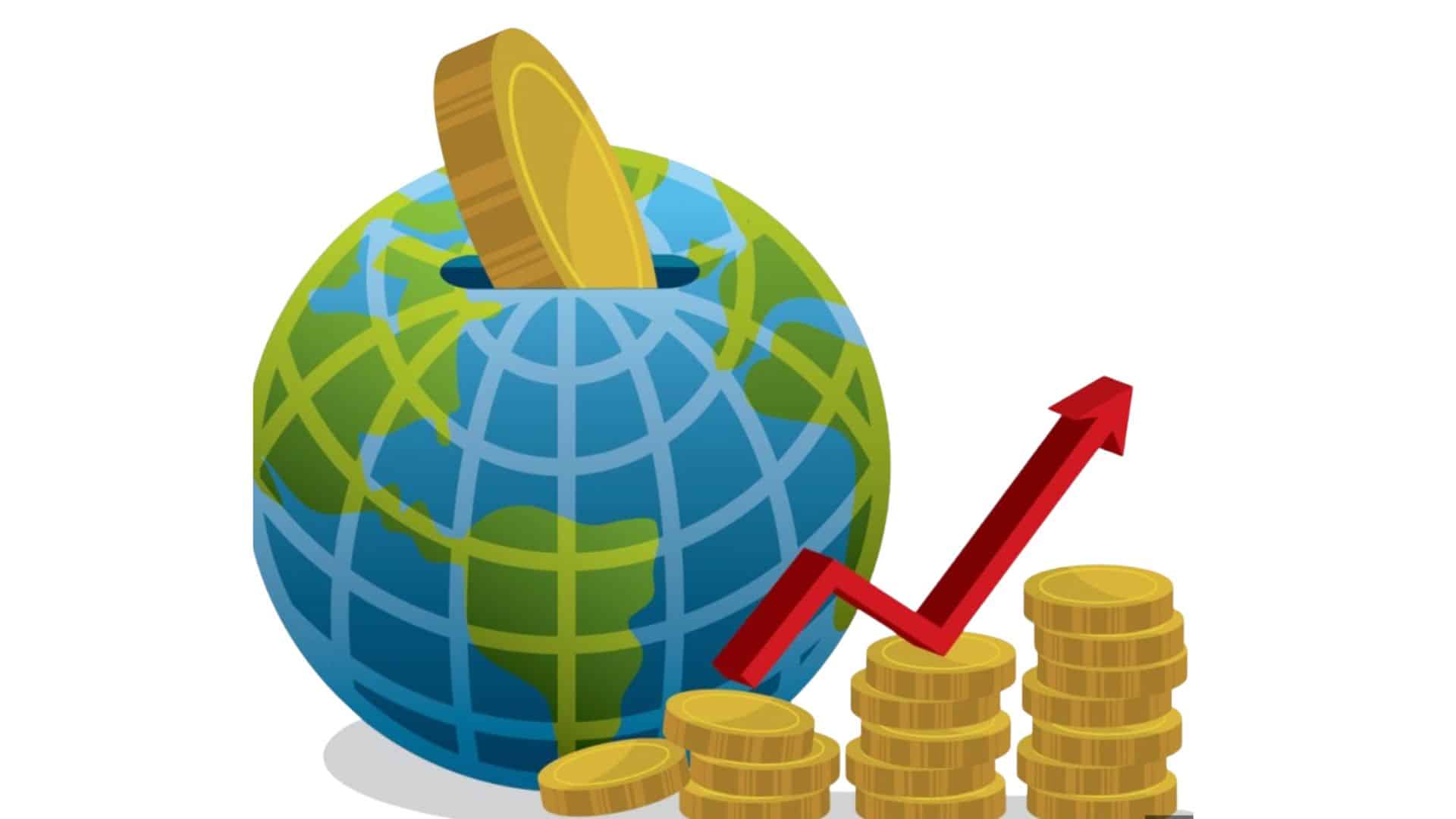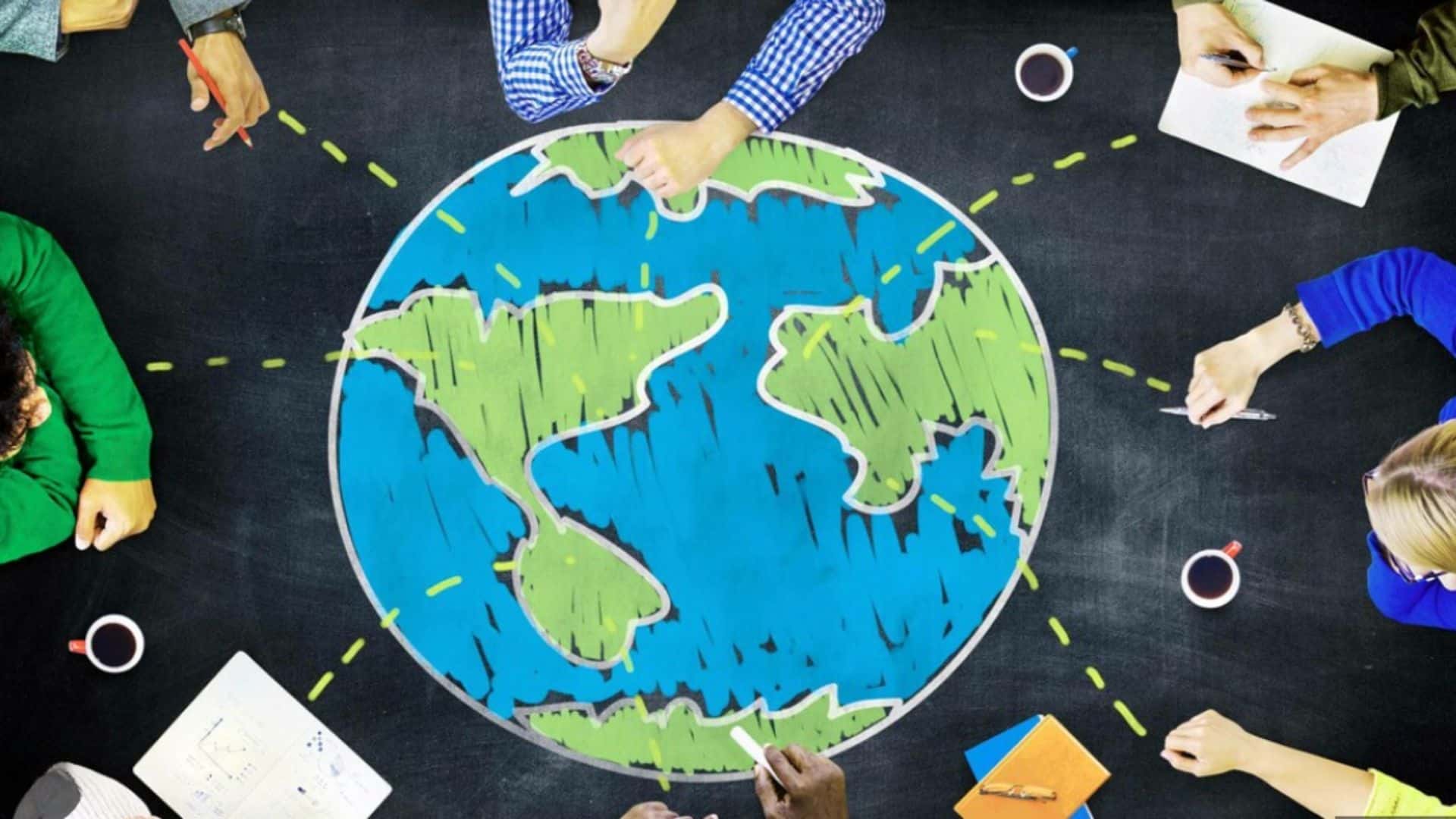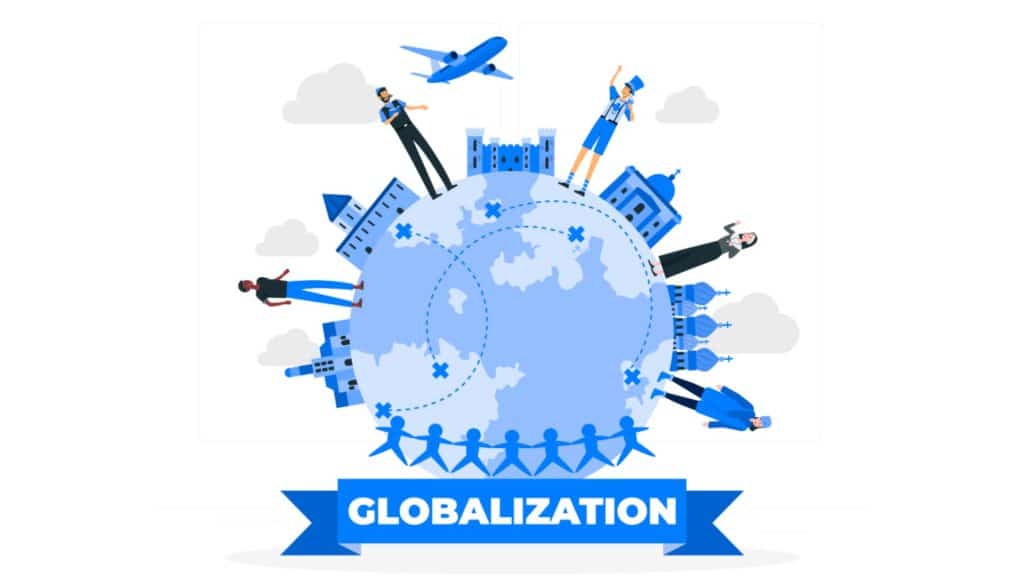Have you ever wondered how a smartphone made in China ends up in your pocket within days? Or why your morning coffee from Ethiopia costs the same whether you buy it in New York or London?
The answer lies in one powerful force: globalisation. This interconnected web of trade, technology, and culture has profoundly altered the way the global economy operates.
From small local businesses to massive multinational corporations, everyone feels its effects. But what exactly is the impact of globalisation on our daily economic lives?
This blog demonstrates how globalization has reshaped everything from job markets to consumer prices, and why understanding these changes is more important than ever.
What Is Globalisation Really?
Globalisation is the process of increased interconnectedness between countries through trade, technology, and communication.
Think of it as the world becoming one giant marketplace where goods, services, money, and ideas flow freely across borders.
This phenomenon isn’t new, but it has accelerated dramatically over the past few decades.
The internet, faster transportation, and international trade agreements have all played crucial roles in making the world a more interconnected place.
The Positive Economic Impacts of Globalisation
Globalisation drives economic growth by opening new markets and boosting trade. It creates opportunities for innovation, job creation, and access to a wider range of goods and services.
1. Lower Consumer Prices
One of the most noticeable benefits of globalisation is cheaper products. When companies can manufacture goods in countries with lower production costs, they pass these savings to consumers.
Examples include:
- Electronics manufactured in Asia
- Clothing produced in developing nations
- Agricultural products from regions with favorable climates
2. Access to Global Markets
Small businesses can now reach customers worldwide through e-commerce platforms.
A craftsperson in rural India can sell their handmade goods to buyers in Europe or the Americas. This access was unimaginable just 30 years ago.
3. Job Creation and Economic Growth
Globalisation creates jobs in multiple ways:
- Export industries expand when companies gain access to international markets
- New sectors emerge to support global trade, like logistics and international finance
- Innovation increases as companies compete on a global scale
Countries that embrace global trade tend to experience faster economic growth. This growth translates into higher living standards and better opportunities for their citizens.
4. Technology Transfer and Innovation
When companies operate globally, they share knowledge and technology across borders. This exchange leads to:
- Faster innovation cycles
- Better products and services
- Improved manufacturing processes
- Enhanced research and development
The Challenges and Negative Impacts of Globalisation

Globalisation brings challenges that can disrupt local economies and job markets. It’s essential to acknowledge these impacts to develop effective strategies for growth and protection.
1. Job Displacement in Developed Countries
While globalisation creates jobs, it also eliminates others. Manufacturing jobs in developed countries often move to locations with lower labor costs.
This shift can devastate entire communities that depended on these industries.
2. Income Inequality
The benefits of globalisation aren’t distributed equally. Highly skilled workers often see their wages increase, while low-skilled workers may face job losses or wage stagnation.
This disparity can widen the gap between the rich and the poor.
3. Economic Vulnerability
Increased interconnectedness means that economic problems in one country can quickly spread to others.
The 2008 financial crisis and the recent pandemic showed how global supply chains can create vulnerabilities.
4. Environmental Concerns
Global trade often involves longer transportation distances, leading to increased carbon emissions.
Additionally, some companies may relocate to countries with weaker environmental regulations.
Globalisation’s Impact on Different Economic Sectors

Globalisation affects each economic sector uniquely, reshaping production, trade, and job opportunities. Understanding these impacts helps businesses and workers adapt to a changing global landscape.
Services
The service sector has experienced tremendous growth due to globalisation. Call centers, software development, and financial services can now operate from anywhere globally.
This change has created opportunities in developing countries while sometimes displacing workers in developed nations.
Manufacturing
Here’s how it brings both advantages and challenges to the global economy:
| Positive Impacts | Negative Impacts |
|---|---|
| Access to cheaper raw materials | Job losses in high-cost countries |
| Larger customer base | Increased competition |
| Economies of scale | Supply chain vulnerabilities |
These effects of globalization directly influence production costs, pricing strategies, and consumer access across various markets.
Agriculture
Farmers can now sell their products to global markets, which may help increase their income. However, they also face competition from international producers, which can reduce prices for local farmers.
This global reach can prompt smaller producers to enhance their efficiency in order to remain competitive.
The Role of Technology in Economic Globalisation
Technology acts as the backbone of modern globalisation. Key technological advances include:
- Internet connectivity enables instant communication
- Digital payment systems facilitating international transactions
- Supply chain management software optimizing global operations
- E-commerce platforms connecting buyers and sellers worldwide
These technologies have made it easier and cheaper for businesses to operate internationally.
Regional Variations in Globalisation’s Impact
Globalisation’s impact varies widely across regions, with developed economies often benefiting from increased trade and technology flows, while developing regions face mixed outcomes shaped by local policies, resource endowments, and social structures.
| Country Type | Positive Impacts | Challenges |
|---|---|---|
| Developing Countries | Rapid economic growth, job creation in manufacturing | Struggle to compete with established economies |
| Developed Countries | Access to cheaper goods, Growth in high-tech & services | Manufacturing job losses |
| Emerging Markets | Become manufacturing hubs, rapid urbanization | Income inequality and infrastructure gaps |
Understanding these country-specific impacts helps explain why globalization can bring growth to some regions while creating challenges in others.
How Globalisation Affects Small Businesses

Small businesses face both opportunities and challenges in a globalized world:
Opportunities:
- Access to international customers through online platforms
- Ability to source materials globally for better prices
- Opportunities to specialize in niche markets
Challenges:
- Increased competition from international companies
- Need for greater technological sophistication
- Complexity of international regulations and standards
The Future of Economic Globalisation
Looking ahead, several trends are shaping how globalisation will evolve in the coming years.
Digital tools are making it easier to trade services across borders, while automation is transforming the way goods are manufactured and determining which jobs are in demand.
At the same time, growing focus on sustainability is beginning to influence trade rules and business practices. Political tensions in some regions are also prompting a shift toward reduced global integration in select industries.
Conclusion
The impact of globalisation on our economy is complex and multifaceted.
While it has brought lower prices, increased opportunities, and faster innovation, it has also created challenges like job displacement and economic inequality.
The key is finding ways to maximize benefits while mitigating negative consequences through smart policies and personal adaptation strategies.
As our world becomes increasingly connected, the ability to navigate globalisation’s effects will become even more crucial for economic success.
For more insights on the economy, .






































